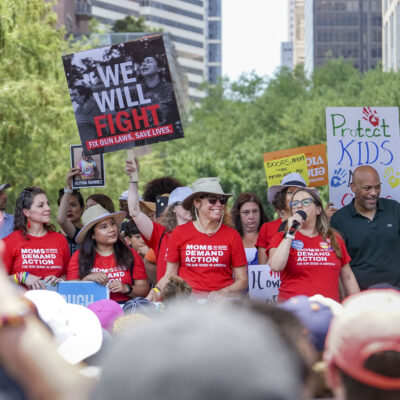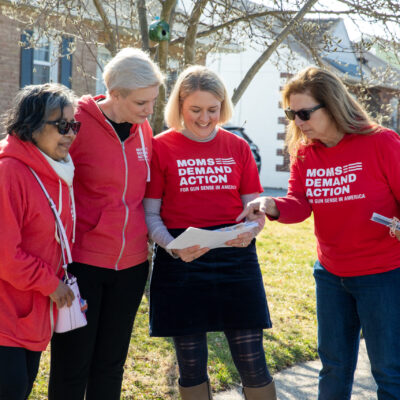Waiting Periods
What does it solve?
A waiting period law requires a certain number of days to pass between the purchase of a gun and when the buyer can actually take possession of that gun. This creates a buffer between someone having a suicidal crisis and access to a gun.
Waiting Periods
Which states require a waiting period before gun purchases?
Alabama has not adopted this policy
Alaska has not adopted this policy
Arizona has not adopted this policy
Arkansas has not adopted this policy
California has adopted this policy
Colorado has adopted this policy
Connecticut has not adopted this policy
Delaware has not adopted this policy
Florida has adopted this policy
Georgia has not adopted this policy
Hawaii has adopted this policy
Idaho has not adopted this policy
Illinois has adopted this policy
Indiana has not adopted this policy
Iowa has not adopted this policy
Kansas has not adopted this policy
Kentucky has not adopted this policy
Louisiana has not adopted this policy
Maine has adopted this policy
Maryland has adopted this policy
Massachusetts has not adopted this policy
Michigan has not adopted this policy
Minnesota has adopted this policy
Mississippi has not adopted this policy
Missouri has not adopted this policy
Montana has not adopted this policy
Nebraska has not adopted this policy
Nevada has not adopted this policy
New Hampshire has not adopted this policy
New Jersey has adopted this policy
New Mexico has adopted this policy
New York has not adopted this policy
North Carolina has not adopted this policy
North Dakota has not adopted this policy
Ohio has not adopted this policy
Oklahoma has not adopted this policy
Oregon has not adopted this policy
Pennsylvania has not adopted this policy
Rhode Island has adopted this policy
South Carolina has not adopted this policy
South Dakota has not adopted this policy
Tennessee has not adopted this policy
Texas has not adopted this policy
Utah has not adopted this policy
Vermont has adopted this policy
Virginia has not adopted this policy
Washington has adopted this policy
West Virginia has not adopted this policy
Wisconsin has not adopted this policy
Wyoming has not adopted this policy
Myth & Fact
Myth
Suicide is inevitable.
Fact
Suicide can be prevented. In fact, the vast majority of people who survive a suicide attempt do not go on to die by suicide. Most people who attempt suicide do not die—unless they use a gun. Across all suicide attempts not involving a firearm, 4% will result in death. But for gun suicides, those statistics are flipped: about 90% of gun suicide attempts end in death.
How it works
When someone is considering suicide, days matter—and waiting periods can save lives.
Guns are by far the most lethal method of commonly-used methods of self-harm, with a fatality rate of about 90%. By contrast, less than 4% of people who attempt suicide using other methods will die, and the vast majority of people who survive a suicide attempt do not go on to die by suicide. Although guns are used in less than 6% of suicide attempts, more than half of suicide deaths are by gun. In a study of statewide suicide rate changes between 2013 and 2014, states with waiting periods saw a decrease in suicide rates, while those without waiting period laws had an increase.
While it is imperative that lawmakers close the “Charleston Loophole,” which would require some gun buyers to wait for several days until their background check is completed before they can complete their purchase, that policy only affects gun buyers whose records require further investigation to determine if they are prohibited. By contrast, a waiting period applies to all gun buyers—providing a “cooling off” period for the people who might reconsider their intentions in the interim.





